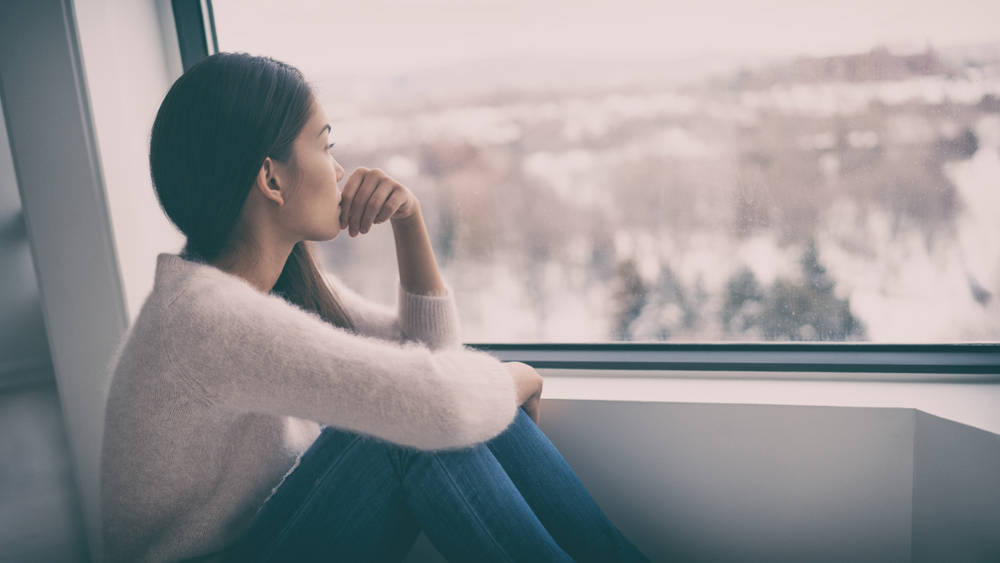To maintain joie de vivre can be difficult when there are limited opportunities to socialise with people who can lift one’s spirits or to attend cultural or sports events that break up the monotony of pandemic days and nights. This winter the pandemic is expected to intensify the depression experienced by many people with the syndrome known as seasonal affective disorder, or SAD.
“I think we’re in for a particularly difficult winter for people with SAD, who seem to be especially susceptible to stressful life events,” Kelly Rohan, professor of psychological science at the University of Vermont, US, told me. “I saw evidence of this last March among the 26 people with SAD we were studying when the pandemic shut everything down. We were interviewing them weekly about their mood and everyone’s score shot up dramatically.”
Although the symptoms of SAD normally disappear completely every summer, Rohan said, “In the summer of 2020 we didn’t see a full remission in our patients. With such big stresses going on, they are overriding the seasonal pattern.”
Rohan fears that the anxiety and stress provoked by the pandemic will increase the risk and severity of winter depression for everyone. “It’s possible that those with subclinical SAD will become clinical,” she said. “People will be limited in what they can do to stay well even if they normally have good coping resources.”
However, Dr Norman E. Rosenthal, the psychiatrist who first identified it in the 1980s and then devised an effective treatment, said, “Just understanding the issues can give people a blueprint for handling them more effectively.” Most helpful for people with SAD, he said, is exposure to sunlight or its artificial equivalent for 20 to 30 minutes every morning. The standard amount of light needed is 10,000 lux. (Lux is the SI derived unit of illuminance measuring luminous flux per unit area.)
Sitting under a commercial light box at least 1 foot square will do the job. Also helpful is using a dawn simulator in the bedroom or a light set on a timer to turn on 10 or 20 minutes before you get up. My late husband was helped by walking the dog for half an hour or so every morning after sunrise.
“A 20-minute early morning walk in the sun is as good as commercial light therapy,” Dr Rosenthal said, “but while morning is best, whenever you can do a walk is helpful. The combination of exercise and outdoor light is crucial. It connects you with your environment — not just the light but also the birds, trees, animal life, neighbourhood — all can act as an antidote to the cocoon of isolation.”
Our conversation reminded me of the spirit-lifting tactics I had adopted during the devastating early months of the pandemic, when my city was the epicentre of Covid-19 infections, hospitalisations and deaths. I made a point to find something every day that brought joy: new growth on neighbourhood trees, emerging blooms in people’s yards, watching my dog play with his canine pals, flirting with toddlers on the street, doing an evening shout-out for our essential workers who put their lives on the line for the rest of us.
“Don’t squeeze joy out of your life,” Dr Rosenthal said emphatically. “There’s got to be joy every day. It’s an upfront investment that pays off handsomely.” He suggested taking classes online, perhaps learning to make jewellery or paint or play an instrument. Also very important is staying connected with people, perhaps by scheduling a socially distant lunch date or joining a friend for coffee or tea.
Rohan said, “It’s more important than ever to push yourself to stay engaged with activities you enjoy and stay connected with people as best as you can. To do otherwise is a recipe for disaster.”
If in-person connections won’t work, use the telephone to stay in touch with people you care about. I make a practice of calling a geographically distant family member or friend every week.
The isolation and quiet of the pandemic enabled Dr Rosenthal to tackle a long-delayed book project: analysing poetry. “Poetry,” he said, “has the power to heal,” and he’s chosen 50 poems to discuss how they can make a difference in one’s life.
Another valuable tip is to establish and maintain structure by doing things in a more or less set pattern every day. I recently realised it was the loss of the satisfying routines of summer that helped precipitate my fall funk.
In a Times op-ed article in March, Scott Kelly, a retired Nasa astronaut who spent nearly a year on the International Space Station, described the tremendous psychological value of following a schedule and leading a structured life with a consistent bedtime. “Smoothing out the structure of the day is important for maintaining circadian rhythms,” Dr Rosenthal said. “Sleep becomes more consolidated and it’s good for psychological well-being.”
New York Times News Service











